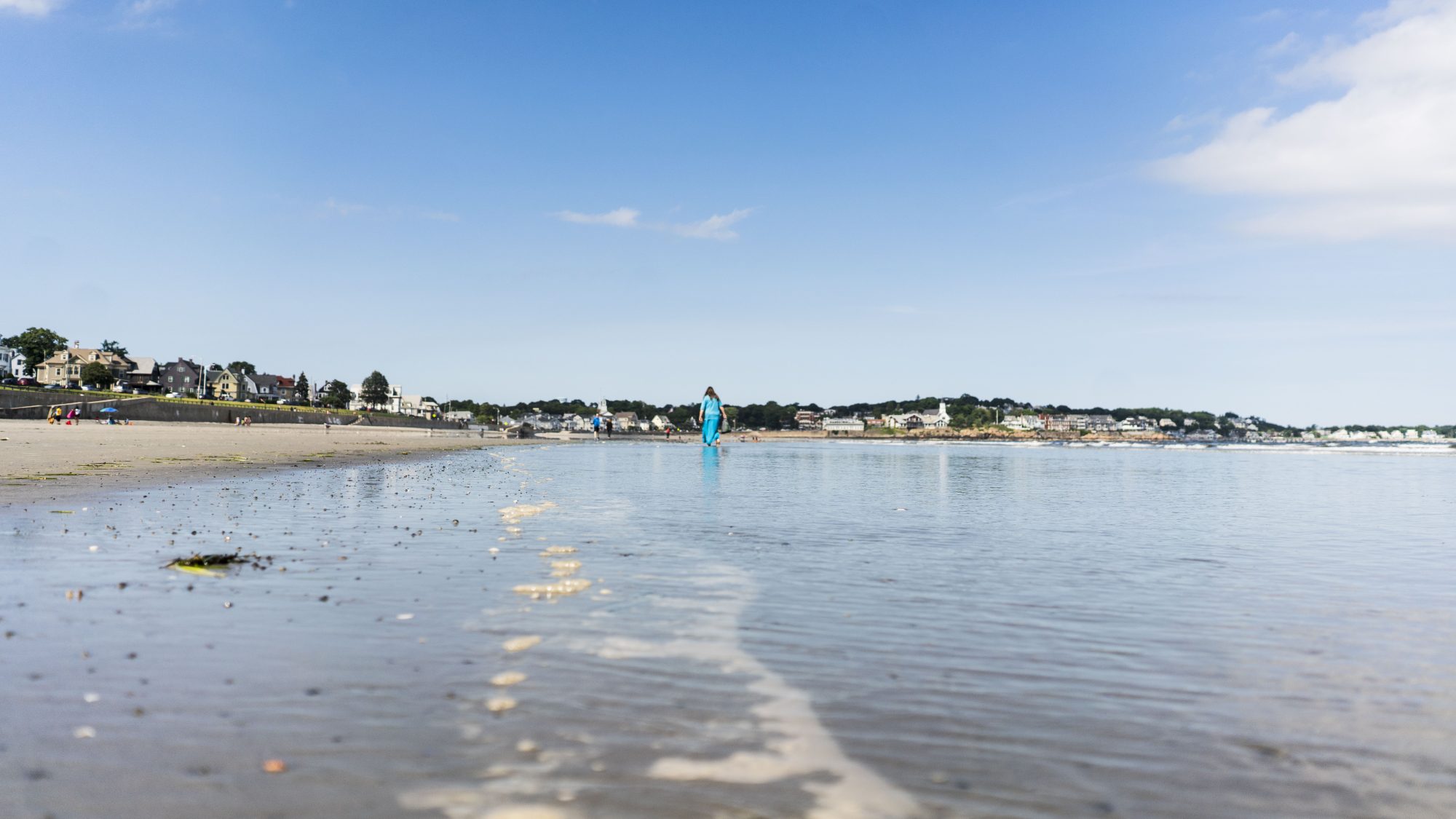SWAMPSCOTT — King’s Beach cleanup efforts took center stage as the Select Board discussed ways to spend the town’s remaining $2.18 million in American Rescue Plan Act funding Wednesday night.
Having already allocated roughly $4.5 million in ARPA funds, approximately $2.5 million of which was earmarked toward King’s Beach pollution mitigation, the town must dedicate and spend its remaining federal funds before Dec. 31, 2024.
Before Town Accountant Amy Sarro presented the board with a number of proposed ARPA projects, three Swampscott residents, including two Save King’s Beach community activists, strongly urged the board to use the $2.5 million currently allocated toward King’s Beach pollution elimination and to earmark the town’s remaining funds toward source elimination.
The town is currently working to comply with a 2015 consent decree from the Environmental Protection Agency to re-sleeve or replace leaky sewer pipes that expel sewage into the town’s wastewater pipes and eventually onto King’s Beach through the Stacey’s Brook outfall. Speaking before the board, Save King’s Beach organizer Elizabeth Smith said the town had not put enough effort or funding into compliance with the consent decree.
“Today, over 50% of Swampscott’s pipes are over 100 years old, leaking sewage into the stormwater drainage system. Last summer, King’s Beach was closed for over 90% of the swimming season,” Smith said. “The EPA sent a letter to Swampscott on Sept. 11, 2023. It states ‘more aggressive action by the town to eliminate sources of untreated sanitary sewage is critical.’ Why was this letter not referenced during the Oct. 4 meeting when the Select Board reviewed a capital plan recommending an even slower funding schedule for rehab of the leaky sewers?”
Presenting a list of proposed ARPA projects from different municipal department heads, Sarro said both of the Department of Public Works’ proposals were for King’s Beach. The DPW proposed one $182,000 pollutant discharge elimination plan in accordance with the EPA mandate, as well as funding for a more than $2 million long-term water-quality engineering project.
Additionally, the Board of Health proposed allocating $80,000 toward the creation of a mental-health support group and a $60,000 proposal for a town-wide environmental-grant program to incentivize resident installation of environmentally friendly practices, such as use of solar panels or composting. The Public Library requested $75,000 for the purchase of an electric mobile library, and the Senior Center requested $75,000 for a meal-and-drive program, which would involve hiring an extra van driver for senior transport and an additional cook.
In response to the presentation, Town Administrator Sean Fitzgerald reminded the Select Board that some of the proposed projects can be funded with state or federal resources.
“These (ARPA funds) are one-time revenues. They’re not going to reoccur,” Fitzgerald said. “We want to have something that really reflects the importance and the uniqueness of these dollars and supports the spirit of the ARPA legislation.”
Select Board Vice Chair Katie Phelan echoed Fitzgerald’s comments, adding that the town should prioritize needed projects, as opposed to “wants.”
Select Board member Doug Thompson agreed with Phelan. He added that the board should consider allocating funds toward infrastructure projects —particularly coastal-resiliency infrastructure — as well as historical-preservation funding and an additional $1 million for source-elimination efforts at Fisherman’s Beach, which has similar pollution problems as King’s Beach.
Select Board member MaryEllen Fletcher, on the other hand, suggested that the town expedite the spending of its previously earmarked $2.5 million for King’s Beach, while using the remainder of its ARPA funds for source elimination infrastructure at Fisherman’s Beach.
“The Finance Committee voted two years ago to use ARPA funds for infrastructure. It’s more than the full $2.5 million for King’s Beach — the $2.1 million should be used for the infrastructure that heads down to Fisherman’s Beach,” Fletcher said.
Acknowledging the need for pollution elimination at King’s Beach, Select Board member Peter Spellios highlighted the importance of other town projects, such as coastal-resiliency infrastructure and seawall repair. Spellios reminded the board that the town has already spent more than $6 million on King’s Beach and plans to pursue additional state and federal funding.
“I know there’s the urgency of Fishermen’s and King’s Beach, but I don’t think there’s any clear evidence here that what we’re doing is the most effective use of our money, especially if we have the opportunity to leverage our money from much bigger funds and bigger partnerships with partners who do have the capability of fixing this issue a lot quicker than, frankly, we will be able to by ourselves,” Spellios said.
After lengthy discussions, the board did not take a vote on ARPA spending and instead agreed to further discuss the allocations at its next meeting.

